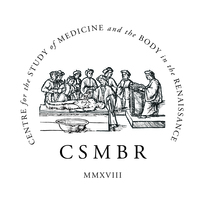12th Annual Conference of the Research Network on the History of the Idea of Europe
Athens 9 – 12 September 2021
Call for Papers
Revolutions and rebellions have been a constant feature of the history of the modern age. Examples abound from the “Glorious” and the “Industrial” to the French and the American Revolutions; from the Haitian to the Greek Revolution and the Revolutions of 1848; from the Russian Revolution to the Mexican, the Chinese and the Iranian Revolution; from the anti-colonial uprisings of the twentieth century to the “velvet”, “rose” and “orange” revolutions of the twenty-first century. As moments of rupture and radical change, revolutions accelerate historical time, challenge existing hierarchies and mark the advent of new social, political and cultural formations and constellations; they unite and divide. Revolutions also constitute critical processes for the reconfiguration of conceptions of Europe. Ideas about Europe can be discovered at the intersection of political discourses, structures of power, geopolitical perspectives and identity projects. The history of modern revolutions offers a prime opportunity to re-examine and re-think European historical realities and recover the making of ideas about Europe in the modern age; revolutions have been central to discussions about Europe’s pasts and futures, and have shaped the continent’s political and cultural heritage.
The conference focuses on modern revolutions as social, political, cultural and intellectual events, and as transformative processes. It turns a critical eye on the conceptualization of the term “revolution”. It investigates the evolving ideas, perceptions and images about Europe in the context of revolutionary politics. It explores how modern revolutions have affected discourses about Europe.
The conference organizers invite papers that shed new light on visions and ideas of Europe addressing, but not limited to, the following topics :
- Revolutionary ideas, connections and networks across national, imperial and international borders
- The concept of “revolution”, “rebellion” and its uses
- Circulation, transfer and appropriation of revolutionary projects and the dynamics of socio-political change in Europe, and beyond
- The history of European revolutionary and counter-revolutionary thought in a transnational and global perspective
- Revolutionary languages and rhetoric, and visions of Europe
- Revolutionaries, intellectuals, exiles, men and women at the crossroads of European and non-European Revolutions
- Revolutions and the making of European and International Orders
- Revolutions as a core feature of European identity
- Revolutions and European states of emergency
- Anticolonial and postcolonial thought, revolutionary visions and perceptions of Europe from across the globe
The themes listed above are examples and by no means limited to the exclusion of others.
On the occasion of the bicentenary of the Greek Revolution of 1821, the conference will also host a special roundtable on the Greek Revolution and the Idea of Europe.
Confirmed keynote speakers include Professors Annelien De Dijn (Utrecht University) and Balázs Trencsényi (Central European University
If you would like to present a paper (15 minutes) or organize a panel (3/4 speakers), please send a 300-word abstract (in case of a panel, this should be per paper) with a title and a short biography by 28 February 2021 to europerevolutions@gmail.com. Please note that the working language of the conference is English.
The conference has no registration fees. We aim to provide accommodation for up to 3 nights to a limited number of participants who cannot benefit from the financial support from their institution. Interested applicants should state this clearly in their paper proposals.
In the event of the imposition of COVID-related restrictions alternative arrangements will be explored
Organizers
University of the Peloponnese, École Française d’Athènes (EFA), Institut für Griechische und Lateinische Philologie/Centrum Modernes Griechenland (CeMoG), Freie Universität Berlin, Hellenic Open University (Public History MA program), Institute for the Study of Ideas of Europe (ISIE), University of East Anglia.
Conference Scientific Committee
Tassos Anastassiadis (EFA/McGill University), Matthew D’ Auria (University of East Anglia), Fernanda Gallo (Cambridge University), Efi Gazi (University of the Peloponnese), Georgios Giannakopoulos (Academy of Athens Postdoc/King’s College London), Kate Papari (University of the Peloponnese, Freie Universität, Hellenic Open University Press), Miltos Pechlivanos (Freie Universitӓt), Peter Pichler (Karl-Franzens University Graz), Jan Vermeiren (University of East Anglia).
Local Organizing Committee
Efi Gazi, Georgios Giannakopoulos, Kostis Gotsinas, Kate Papari




